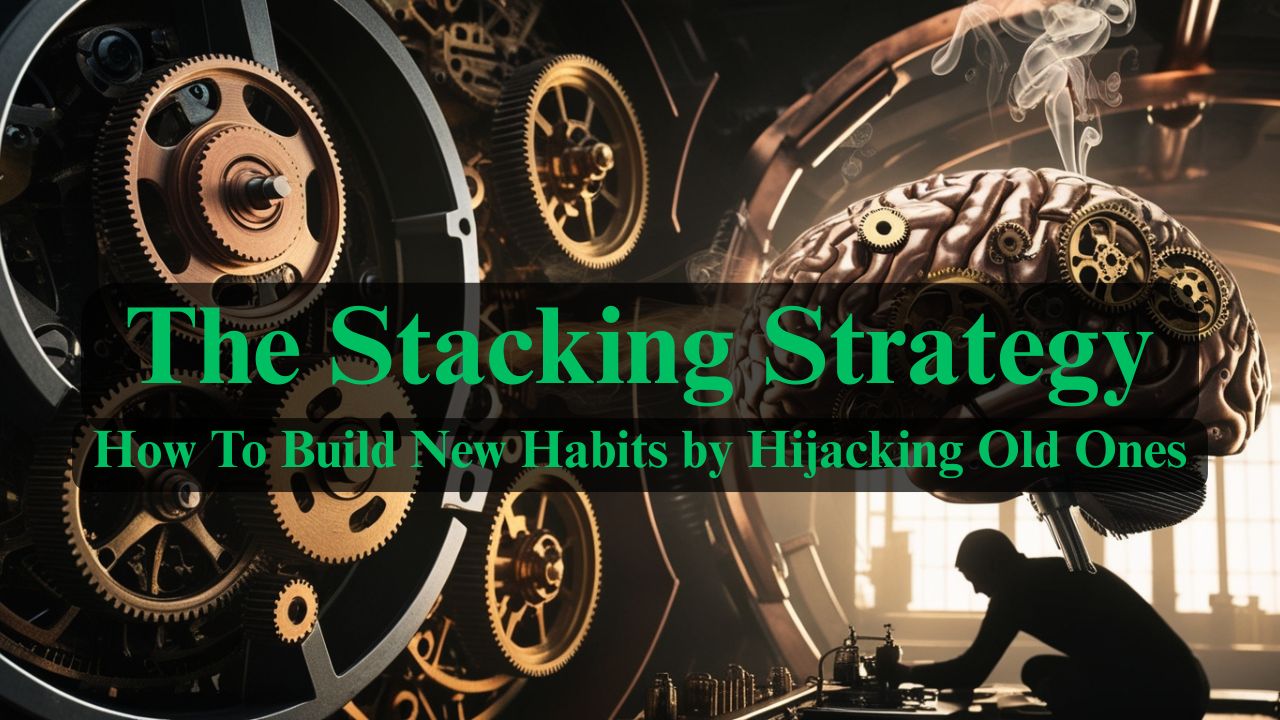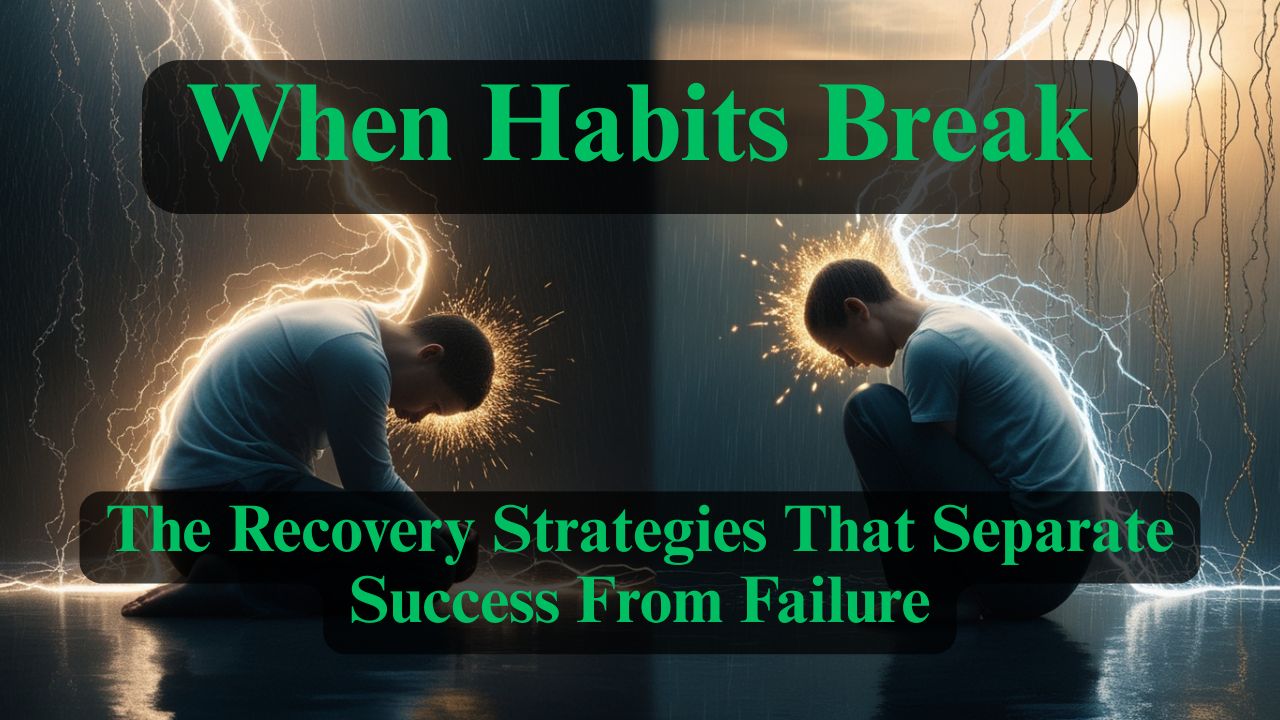Persistence vs. Self-Sabotage: How to Stop Undermining Your Goals
We all have goals and dreams, whether it’s advancing in our career, improving our health, or achieving personal milestones. But sometimes, despite our best intentions, we find ourselves stuck. It’s as if something is holding us back, and we can’t seem to move forward, no matter how hard we try. In many cases, that “something” is self-sabotage.
Self-sabotage is the act of actively or unconsciously preventing yourself from reaching your goals. It can manifest in different ways: procrastination, negative self-talk, making excuses, or even engaging in behaviors that undermine your success. Ironically, these behaviors are often the result of the fear of failure or the belief that you don’t deserve to succeed.
So, how does persistence come into play when it comes to self-sabotage? Persistence is the opposite of self-sabotage. It’s the determination to keep moving forward, despite setbacks and obstacles. In this article, we will explore how self-sabotage can prevent us from reaching our goals, how persistence can help us break free from these patterns, and practical strategies to overcome self-sabotage.
What is Self-Sabotage?
Self-sabotage is any action or thought pattern that interferes with your ability to achieve your goals. It might not always be obvious—it can manifest in subtle ways, such as putting off important tasks, doubting your abilities, or choosing temporary comfort over long-term progress.
Here are some common forms of self-sabotage:
• Procrastination: Putting things off, even when you know they are important, is a classic form of self-sabotage.
• Negative Self-Talk: Telling yourself you’re not good enough, or that you’ll never succeed, creates a mental barrier that keeps you from taking action.
• Avoiding Responsibility: Making excuses or avoiding tasks that require effort can prevent you from making progress.
• Fear of Failure: Self-sabotage often occurs when we fear the consequences of failure so much that we avoid taking action at all.
At the core of self-sabotage is a fear—whether it’s fear of failure, fear of success, or fear of judgment. These fears can cause us to doubt our abilities or convince ourselves that we don’t deserve to achieve our goals. The result? We hold ourselves back.
How Persistence Helps You Overcome Self-Sabotage
Persistence is about continuing to pursue your goals, even in the face of difficulties. It involves cultivating the strength to move forward, even when you’re tempted to quit. When it comes to overcoming self-sabotage, persistence is essential for breaking free from those limiting patterns and behaviors.
1. Persistence Keeps You Moving Forward Despite Setbacks
No one is immune to challenges and setbacks. But persistent individuals don’t allow setbacks to stop them. Instead of giving in to self-doubt or fear, they view obstacles as opportunities to learn and grow. When self-sabotage arises—whether in the form of procrastination or negative thoughts—persistence reminds you that progress is more important than perfection. It encourages you to keep taking action, even if the path isn’t perfect.
2. Persistence Builds Confidence and Momentum
When you persist in the face of challenges, you gain confidence in your ability to overcome obstacles. Each time you push through a moment of doubt or fear, you build mental resilience and grow stronger. This confidence can help you break free from the grip of self-sabotage because you begin to see that you are capable of achieving your goals. Additionally, persistence helps build momentum. Small, consistent actions add up over time, and the more you keep going, the easier it becomes to stay on track.
3. Persistence Helps You Manage Fear
Fear is a common root of self-sabotage, but persistence can help you confront and manage that fear. When you continue working toward your goals despite feeling scared or unsure, you prove to yourself that you don’t have to let fear control your actions. Over time, the more you persist, the less power fear will have over you. Rather than letting fear stop you, persistence allows you to move forward despite it.
4. Persistence Cultivates Resilience
Resilience is the ability to recover from setbacks and keep going. Persistence helps you develop resilience because it encourages you to keep working, even when things don’t go according to plan. The more you practice persistence, the better you become at bouncing back from challenges. Instead of falling into the trap of self-sabotage when things get tough, resilience keeps you on track toward achieving your goals.
Practical Tips to Break Free from Self-Sabotage and Embrace Persistence
If you find yourself stuck in patterns of self-sabotage, there are steps you can take to build persistence and get back on track. Here are some practical strategies:
1. Identify Your Self-Sabotaging Behaviors
The first step in breaking free from self-sabotage is becoming aware of the ways you hold yourself back. Whether it’s procrastination, negative self-talk, or avoidance, identifying these behaviors is the first step to overcoming them. Keep a journal of your actions and thoughts to recognize when you’re engaging in self-sabotage.
2. Set Small, Achievable Goals
Breaking your larger goals into smaller, more manageable tasks makes it easier to stay focused and motivated. Achieving small milestones builds momentum and gives you a sense of accomplishment, which can help you push past self-sabotaging behaviors.
3. Challenge Negative Thoughts
Negative self-talk is one of the most powerful forms of self-sabotage. When you catch yourself thinking, “I’m not good enough” or “I’ll never succeed,” challenge those thoughts. Replace them with positive affirmations like “I am capable,” or “I’ve faced challenges before, and I can overcome this one too.” Persistence requires a positive, growth-oriented mindset.
4. Create Accountability
When we’re left to our own devices, it’s easy to fall into patterns of self-sabotage. But having someone to hold you accountable—whether a friend, family member, or mentor—can make all the difference. Share your goals and progress with someone who can encourage you and help you stay on track.
5. Develop Healthy Habits
Consistent habits are the foundation of persistence. Establish routines that support your goals and well-being. Whether it’s setting aside time for focused work, exercising regularly, or practicing mindfulness, healthy habits create structure and reduce the chance of falling into self-sabotage.
6. Practice Self-Compassion
Self-sabotage often stems from negative emotions like guilt or shame. Instead of being hard on yourself when you slip up, practice self-compassion. Understand that setbacks are a natural part of the process. Be kind to yourself, learn from mistakes, and keep moving forward with determination.
Conclusion: Persistence is the Key to Achieving Your Goals
Self-sabotage can be a frustrating obstacle, but persistence is the antidote. By cultivating persistence, you build the strength to push through setbacks, face fears, and continue making progress toward your goals. Instead of allowing self-sabotage to hold you back, you can use persistence as a tool to overcome obstacles and stay focused on the bigger picture.
Remember, success isn’t about avoiding mistakes—it’s about learning from them and continuing to take action, no matter the setbacks. With persistence, you can break free from self-sabotage, build resilience, and achieve the goals that matter most to you. Keep going, even when it’s tough, because persistence will always be the key to unlocking your potential.
- Audio Articles
- Audio Articles 1
- Audio Articles 2
- Audio Articles 3
- Audio Articles 4

7 Daily Disciplines That Transform Your Life
The power to act with intention, to align your actions with your values, and to move steadily toward a life of purpose—even on days you don't feel like it.
Read Full Article
How to Build Unbreakable Discipline
Discipline is built—habit by habit, choice by choice, day by day. And the most powerful kind? The kind that doesn’t crack under pressure. The kind that becomes part of who you are.
Read Full Article
Why Motivation Fails And Discipline Wins Every Time
We all love the feeling of motivation—that surge of energy, that rush of inspiration that makes everything seem possible. But here’s the problem: motivation is unreliable. It’s emotional. It comes and goes. And if your goals rely on you “feeling like it,” you’re already in trouble.
Read Full Article
Discipline Over Desire
Desire is loud. It burns bright, talks fast, and loves to dream. But desire alone doesn't achieve much. Every person has desires. Very few have the discipline to bring them to life.
Read Full Article
The Science of Sticking
If you've ever tried to build a new habit, you've probably heard that it takes 21 days. This number gets thrown around so often that it feels like scientific fact.
Read Full Article
The Stacking Strategy
What if I told you that the habits you already have—even the ones you consider "bad"—could become the secret weapons for building the habits you want?
Read Full Article
When Habits Fail - The Recovery Strategies That Separate Success From Failure
Here's what nobody tells you about building habits: you will fail. You'll miss days. You'll fall off track. You'll have weeks where everything falls apart.
Read Full Article
The Ultimate System - Designing a Life Where Good Habits Are Inevitable
You've learned to recognize habits, understand their formation timeline, stack them strategically, and recover from setbacks.
Read Full Article




















